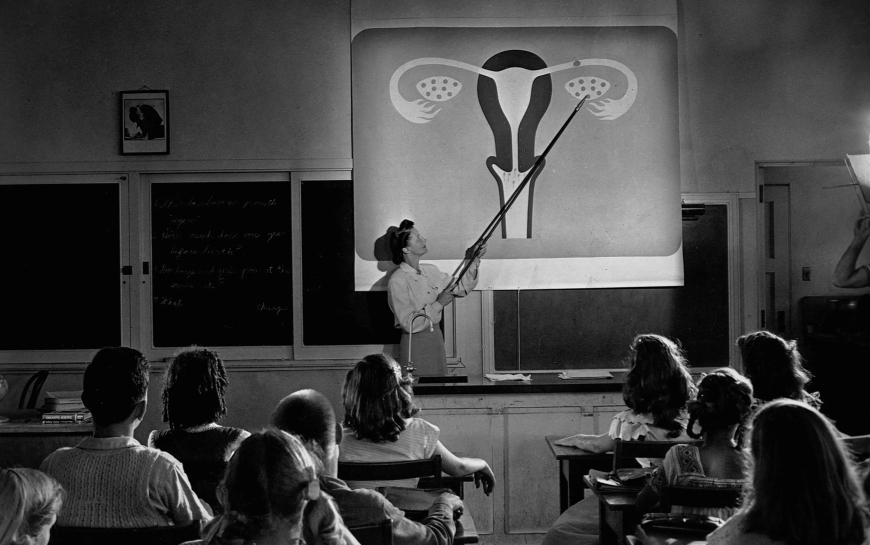Sexual Ethics Across Religions: Common Ground and Key Differences in Modern Faith Communities
Discover how different religious traditions approach sexual ethics, relationships, and moral decision-making in contemporary contexts.

Sexual ethics represents one of the most complex and evolving areas of religious thought, where ancient teachings meet contemporary realities. As modern faith communities grapple with changing social norms, scientific understanding, and diverse cultural contexts, religious leaders and believers alike seek to understand how their traditions approach sexuality, relationships, and moral decision-making. While significant differences exist among religious traditions, surprising commonalities emerge when examining the underlying values and principles that guide sexual ethics across faiths.
Common Ethical Foundations Across Traditions
Despite theological differences, most major religious traditions share fundamental ethical principles regarding human sexuality. These shared values provide a foundation for interfaith dialogue and mutual understanding, even when specific applications may differ.
The principle of human dignity appears consistently across religious traditions. Christianity emphasizes that humans are created in God's image, Islam teaches that humans are Allah's khalifa (stewards) on earth, Judaism speaks of humans as partners with God in creation, and Eastern traditions emphasize the inherent worth and potential for enlightenment in all beings. This shared recognition of human dignity influences how religions approach sexual ethics, generally emphasizing respect, consent, and the inherent worth of all persons.
Most traditions also emphasize the importance of relationships and community. Whether through Christian concepts of love and fellowship, Islamic emphasis on family and community bonds, Jewish focus on covenant relationships, or Buddhist ideals of interconnectedness, religions generally view sexuality within the context of meaningful relationships rather than as purely individual expression.
The concept of responsibility and stewardship appears across traditions as well. Religions typically teach that sexual expression should be exercised with awareness of consequences and consideration for others' wellbeing. This principle influences teachings about sexual behavior, family formation, and reproductive choices.
Christianity: Diversity Within Unity
Christian sexual ethics encompasses a broad spectrum of beliefs and practices, reflecting the diversity within Christianity itself while maintaining certain core principles rooted in biblical teachings and theological tradition.
Traditional Christian teaching emphasizes that sexual expression is intended for marriage between a man and woman. This view is based on biblical passages and theological understanding of marriage as a sacred covenant reflecting the relationship between Christ and the church. Many Christian denominations maintain this traditional position while developing pastoral approaches that show compassion for those whose lives don't align with these ideals.
However, progressive Christian movements have developed alternative interpretations that emphasize the biblical principles of love, justice, and inclusion. These communities often focus on the quality of relationships rather than their specific form, supporting committed same-sex relationships and broader definitions of family. Progressive Christians argue that the central Christian message of love and inclusion should guide sexual ethics more than specific biblical regulations tied to ancient cultural contexts.
Catholic sexual ethics remains more conservative, emphasizing procreation and unity as the dual purposes of sexuality within marriage. The Catholic Church's natural law approach leads to specific positions on contraception, divorce, and same-sex relationships that differ from many Protestant denominations.
Orthodox Christianity maintains traditional sexual ethics while emphasizing the principle of economia (pastoral discretion) that allows for compassionate application of general principles to individual circumstances. This approach provides some flexibility while maintaining theological consistency.
Islam: Scriptural Guidance and Jurisprudential Development
Islamic sexual ethics derive from Quranic teachings, prophetic traditions (hadith), and centuries of jurisprudential development (fiqh). Islam provides detailed guidance on sexual behavior while emphasizing both the spiritual and practical dimensions of sexuality.
Islamic teaching strongly emphasizes sexual expression within marriage, viewing it as both a blessing and a responsibility. The Quran and hadith literature contain explicit guidance about sexual relations, emphasizing mutual rights and responsibilities between spouses. Islamic tradition recognizes sexual satisfaction as a legitimate need and right within marriage for both men and women.
Islamic law (Shariah) prohibits sexual relations outside marriage (zina) and homosexual acts, but contemporary Muslim scholars debate how these prohibitions should be applied in modern contexts. Some emphasize compassionate interpretation and the importance of avoiding harm, while others maintain strict adherence to traditional legal interpretations.
Modern Islamic sexual ethics also address contemporary issues such as reproductive technologies, gender roles, and women's rights. Progressive Muslim scholars advocate for interpretations that emphasize gender equality and women's agency, while more conservative voices maintain traditional gender role distinctions.
The concept of maslaha (public interest) in Islamic jurisprudence allows for flexibility in applying sexual ethics to contemporary situations, leading to diverse approaches within the global Muslim community.
Judaism: Halakhic Framework and Contemporary Applications
Jewish sexual ethics are grounded in biblical commandments, Talmudic discussions, and ongoing rabbinical interpretation. The halakhic (Jewish legal) framework provides detailed guidance while allowing for scholarly debate and evolution in understanding.
Traditional Jewish sexual ethics emphasize the sanctity of sexual relations within marriage while recognizing sexuality as a positive aspect of human experience. The concept of onah (conjugal rights) establishes mutual sexual obligations between spouses, emphasizing that sexual intimacy serves both procreative and relational purposes.
Jewish law contains detailed provisions about sexual behavior, including the laws of niddah (family purity) that regulate sexual relations during and after menstruation. These laws emphasize ritual purity and the cyclical nature of sexual availability within marriage.
Contemporary Jewish movements show significant diversity in sexual ethics. Orthodox Judaism maintains traditional interpretations while developing pastoral approaches for complex situations. Conservative Judaism has evolved to accept same-sex relationships and ordain LGBTQ+ clergy, while Reform Judaism has embraced full inclusion and equality regardless of sexual orientation or gender identity.
The Jewish emphasis on pikuach nefesh (saving life) allows for flexibility in sexual ethics when health or wellbeing are at stake, providing a framework for addressing contemporary medical and psychological understanding of sexuality.
Eastern Traditions: Karma, Compassion, and Middle Path
Hindu and Buddhist approaches to sexual ethics emphasize different aspects of spiritual development and ethical behavior, generally viewing sexuality as one dimension of human experience that should be approached with wisdom and moderation.
Hindu sexual ethics vary significantly among different traditions and schools of thought. Classical Hindu texts like the Kama Sutra approach sexuality as a legitimate pursuit (kama) alongside dharma (righteousness), artha (prosperity), and moksha (liberation). However, different Hindu traditions emphasize varying degrees of sexual restraint or expression depending on one's stage of life (ashrama) and spiritual goals.
Contemporary Hindu movements show diverse approaches to sexual ethics, with some emphasizing traditional family structures while others embrace more progressive interpretations that focus on compassion and non-harm (ahimsa).
Buddhism generally views sexuality through the lens of suffering reduction and compassionate action. While monastic traditions emphasize celibacy as conducive to spiritual development, lay Buddhism typically accepts sexual expression within the context of committed relationships that don't cause harm to oneself or others.
The Buddhist Middle Way suggests that extreme asceticism and extreme indulgence are both obstacles to spiritual development, leading to moderate approaches to sexual ethics that emphasize mindfulness and compassion.
Contemporary Challenges and Evolving Interpretations
Modern faith communities face unprecedented challenges in applying traditional sexual ethics to contemporary realities. Issues such as LGBTQ+ inclusion, reproductive technologies, changing gender roles, and evolving understanding of human sexuality require ongoing theological reflection and pastoral guidance.
Many religious communities are experiencing internal debates about how to maintain theological integrity while responding compassionately to diverse human experiences. This has led to various approaches, from reaffirming traditional teachings to developing new interpretations that emphasize inclusion and acceptance.
The role of women in religious leadership and decision-making about sexual ethics represents another area of ongoing development. As women gain greater voices in religious communities, perspectives on sexuality, reproduction, and gender roles continue to evolve.
Scientific understanding of sexual orientation, gender identity, and human sexuality also influences contemporary religious thought. Many faith communities grapple with integrating new knowledge about human sexuality with traditional theological frameworks.
Interfaith Dialogue and Common Concerns
Despite theological differences, religious communities often share common concerns about contemporary culture's approach to sexuality. Many faith traditions express concern about the commercialization of sexuality, the objectification of human beings, and the potential harm from sexual behaviors that lack consideration for human dignity and wellbeing.
Religious communities also share concerns about protecting children and vulnerable individuals from sexual exploitation and abuse. This common ground provides opportunities for interfaith cooperation on issues of human trafficking, child protection, and sexual violence prevention.
The challenge of maintaining religious identity while engaging constructively with secular society represents another area of shared concern among faith communities. Many religious groups seek ways to maintain their theological convictions while participating in pluralistic democratic societies.

Progressive and Conservative Tensions
Within most religious traditions, tensions exist between progressive voices seeking to adapt sexual ethics to contemporary understanding and conservative voices emphasizing the importance of maintaining traditional teachings. These tensions often reflect broader theological debates about the relationship between scripture, tradition, and contemporary experience.
Progressive religious movements typically emphasize values such as inclusion, equality, and social justice as central to their faith traditions, leading to more accepting approaches to diverse sexual expressions and relationships. Conservative movements generally emphasize the authority of traditional teachings and the importance of maintaining historical continuity in religious practice.
These tensions are not merely academic but have real implications for religious communities, affecting everything from clergy ordination policies to pastoral care practices to community inclusion policies.
Pastoral Care and Individual Guidance
Most religious traditions recognize the need for pastoral sensitivity in addressing sexual ethics with individuals and families. This involves balancing theological principles with compassionate care for people facing complex situations.
Religious leaders increasingly receive training in providing guidance that integrates theological understanding with psychological and medical knowledge. This includes understanding trauma, mental health issues, and the complexity of human sexual development.
Many religious communities have developed resources and support systems for individuals whose experiences don't align perfectly with traditional sexual ethics, emphasizing pastoral care and spiritual guidance rather than judgment or exclusion.
Future Directions and Continuing Evolution
Sexual ethics in religious communities continues to evolve as faith traditions engage with contemporary challenges while maintaining connection to their foundational principles. This evolution occurs through scholarly study, pastoral experience, and community dialogue.
Interfaith cooperation on sexual ethics issues, particularly around shared concerns like human dignity and protection of vulnerable individuals, represents a growing area of collaboration among religious communities.
The integration of global perspectives and diverse cultural contexts also influences the development of sexual ethics in religious traditions, as communities recognize the diversity of human experience and cultural expression within their faith traditions.
As religious communities continue to navigate these complex issues, the emphasis on fundamental values like human dignity, compassion, and responsible stewardship provides common ground for ongoing dialogue and mutual understanding, even amid significant theological differences.











